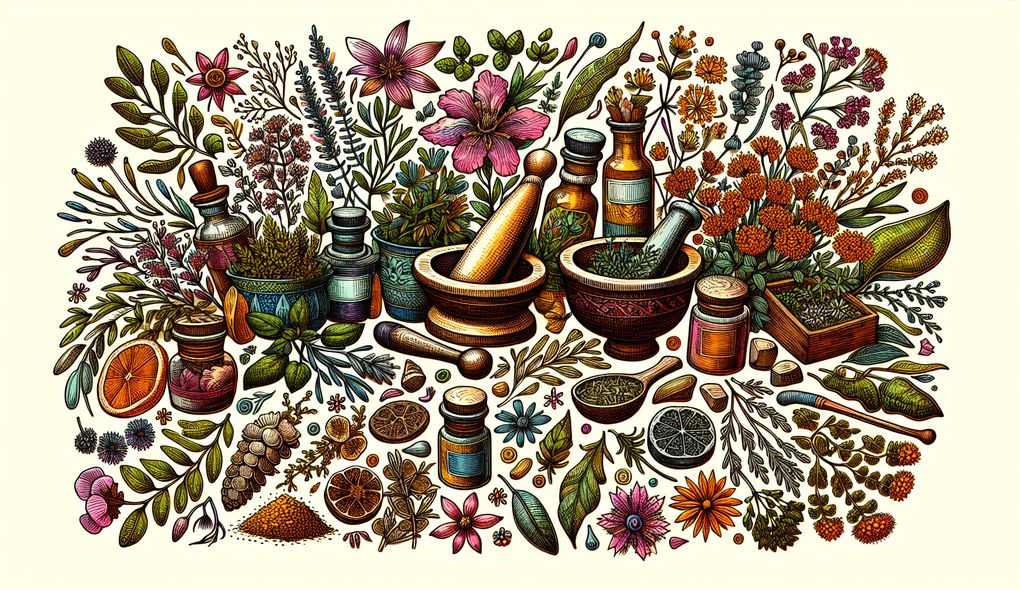What steps do you take to ensure sustainability and ethical standards in harvesting herbs?
INTERMEDIATE LEVEL

Sample answer to the question:
To ensure sustainability and ethical standards in harvesting herbs, I take several steps. Firstly, I always research and identify the specific herbs I intend to harvest, making sure they are not endangered or at risk. I also consider the season and the specific growing conditions of each herb to ensure I harvest them at the optimal time. Additionally, I follow ethical harvesting practices such as leaving enough herbs for natural regeneration and avoiding over-harvesting. I also make sure to obtain proper permits or licenses when necessary. These steps help me maintain sustainability and ethical standards in herb harvesting.
Here is a more solid answer:
To ensure sustainability and ethical standards in harvesting herbs, I take a comprehensive approach. Firstly, I conduct thorough research on each herb I plan to harvest, including its conservation status and any regulations surrounding its harvesting. I also consider the environmental impact of the harvesting process and choose methods that minimize disruption to the ecosystem. For example, I use hand tools instead of heavy machinery to reduce soil erosion. Additionally, I practice selective harvesting, only taking what is necessary and leaving enough herbs for natural regeneration. I also collaborate with local communities and indigenous knowledge holders to ensure that traditional harvesting practices are respected and followed. By following these steps, I am able to maintain sustainability and uphold ethical standards in herb harvesting.
Why is this a more solid answer?
The solid answer provides more specific details and examples of the steps the candidate takes to ensure sustainability and ethical standards in harvesting herbs. It includes considerations for conservation status, environmental impact, and collaboration with local communities. However, it could still be improved by providing more examples of specific herbs and their conservation status.
An example of a exceptional answer:
Ensuring sustainability and ethical standards in herb harvesting is of utmost importance to me. To achieve this, I employ a multi-faceted approach that starts with thorough research. I meticulously study the conservation status of each herb I intend to harvest, consulting reputable sources and botanical databases. This helps me identify any endangered or at-risk species and avoid their harvest altogether. I also stay updated on local and international regulations regarding herbal harvesting, obtaining the necessary permits and licenses when required. When harvesting, I prioritize ecosystem preservation by using sustainable methods and tools that minimize ecological impact. For instance, I hand-pick herbs rather than using machinery, reducing soil erosion and disturbance to surrounding flora and fauna. I am committed to selective harvesting, taking only what is needed and leaving sufficient herbs for natural rejuvenation and wildlife sustenance. Furthermore, I actively collaborate with local communities and indigenous knowledge holders, respecting their traditional harvesting practices and seeking their guidance. By engaging in knowledge-sharing and respecting cultural heritage, I ensure ethical standards are upheld in herb harvesting. Overall, my comprehensive approach guarantees sustainable and ethical practices in facilitation of herb procurement.
Why is this an exceptional answer?
The exceptional answer demonstrates a deep commitment to sustainability and ethical standards in herb harvesting. It includes thorough research, adherence to regulations, sustainable harvesting methods, selective harvesting, and collaboration with local communities. The answer showcases a holistic and responsible approach to herb harvesting.
How to prepare for this question:
- Familiarize yourself with the conservation status of commonly harvested herbs and understand the regulations surrounding their harvesting.
- Research sustainable and low-impact harvesting methods, such as hand-picking, and be prepared to discuss them during the interview.
- Learn about the traditional harvesting practices of local communities and indigenous knowledge holders in the region where you will be working.
- Stay updated on current knowledge and research in herbalism, including advancements in sustainable practices.
- Consider examples from your past experiences where you have demonstrated a commitment to sustainability and ethical standards in herb harvesting.
What are interviewers evaluating with this question?
- Sustainability practices
- Ethical standards

